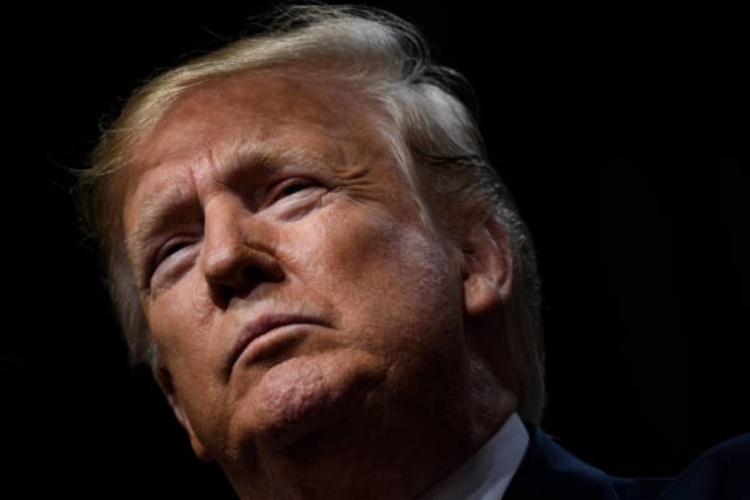
The United States, once a lodestar of progress and morality, now appears intent on dismantling the very rules-based order it once championed. Under President Donald Trump’s second-term administration, the nation is abandoning this framework altogether. Isolationism has re-emerged as the defining tenet of American statecraft, manifesting in a retreat from multilateralism, a wilful disregard for sustainability, and the reversal of policies that once ensured its economic and moral primacy. A nation that once shaped the global order is now presiding over its unravelling.
Within days of his re-election, Trump withdrew the United States from the Paris Agreement for a second time, reinforcing his administration’s disdain for Environmental, Social, and Governance principles. This decision, ostensibly made to protect jobs and industry, is rooted in flawed economic reasoning. Renewable energy now employs more Americans than fossil fuels, yet the administration remains beholden to oil lobbies, peddling the narrative that sustainability is at odds with economic growth. While the world debates net-zero commitments, Washington’s “net” remains one cast solely for short-term financial gain, blind to the mounting environmental and economic toll.
READ | Sovereign green bonds: Why investors are holding back
Rejecting ESG standards is not just an environmental misstep—it is a geopolitical blunder. The European Union has already embedded sustainability into its trade and regulatory frameworks, integrating ESG compliance into investment decisions and trade agreements. By turning its back on this global shift, the United States risks rendering its industries uncompetitive in a world where sustainability metrics dictate capital flows and market access. America’s abdication of climate leadership does not insulate its corporations from these realities; it merely cedes the regulatory frontier to Brussels and Beijing. The consequence will not be economic liberation, but increasing isolation.
Undermining diversity a blow to innovation
This ideological regression extends beyond climate policy. The dismantling of Diversity, Equity, and Inclusion programmes—framed as a rejection of divisive policies—is another example of America’s self-inflicted decline. For a nation whose competitive advantage has long been its ability to attract and integrate diverse talent, the war on DEI is not just cultural retrenchment—it is economic self-sabotage.
Empirical evidence consistently demonstrates that diverse teams drive innovation and enhance corporate performance. Yet this administration prefers to stoke cultural divisions rather than harness the strengths of a heterogeneous workforce. The American ethos of “pulling oneself up by the bootstraps” appears to be reserved for those born into privilege, as barriers to social mobility are fortified under the guise of fairness. Equal opportunity, once the cornerstone of the American Dream, is increasingly becoming a transactional privilege rather than a national principle.
Erosion of strategic alliances
America’s global standing is further imperilled by its transactional approach to alliances. Long-standing commitments to NATO and other multilateral institutions have been reduced to crude financial calculations, eroding trust and diminishing strategic credibility. Allies are extorted, adversaries are appeased, and global agreements are dismissed as dispensable.
The decision to re-withdraw from the World Health Organisation, even as global health crises persist, epitomises a nation prioritising ideological theatrics over pragmatic diplomacy. In an interconnected world, pandemics and climate disasters recognise no borders, yet Washington insists on retreating behind them. The consequences of this insular approach will not be limited to diplomatic isolation; they will undermine America’s influence in shaping the rules of the global order.
Human rights regressions
America’s retreat from global leadership is particularly conspicuous in the realm of human rights. The rollback of protections for transgender individuals in workplaces, schools, and the military places the United States at odds not only with its own professed values but also with global progress. Nations once criticised by Washington for their human rights records have moved forward while America slides backward.
India legally recognised third-gender rights in 2014, and several developing nations have instituted legal protections for marginalised communities. Yet the United States appears to be regressing into a model of governance more aligned with theocratic conservatism than democratic pluralism. The self-proclaimed leader of the free world now finds itself trailing behind nations it once lectured on inclusivity.
Trump and America’s victim complex
At the core of these policies is a worldview that casts America as a victim rather than a leader—besieged by global conspiracies rather than engaged in shaping the future. This narrative may be politically expedient, but it is strategically ruinous. It is one thing to redefine America’s global role; it is another to relinquish it entirely.
If the United States was once committed to forming a more perfect union, today it seems more interested in perfecting the art of division. This new world (dis)order may still have America at its centre, but its influence is increasingly a shadow of its former self. Leadership has become a rhetorical artifact rather than a strategic imperative.
In this vacuum, the world will be forced to forge new alliances and seek common ground elsewhere. The tragedy is not merely that the United States is retreating—it is that, in doing so, it no longer seems to understand the rules of the game. Global leadership is no longer about unilateral power but about shared responsibility. The longer Washington clings to its self-obsessed power play, the further it will drift from the realities of a world that has already begun moving on.
Srinath Sridharan is a strategic counsel with 25 years experience with leading corporates across diverse sectors including automobiles, e-commerce, advertising and financial services. He understands and ideates on intersection of finance, digital, contextual-finance, consumer, mobility, Urban transformation, and ESG. Actively engaged across growth policy conversations and public policy issues.

